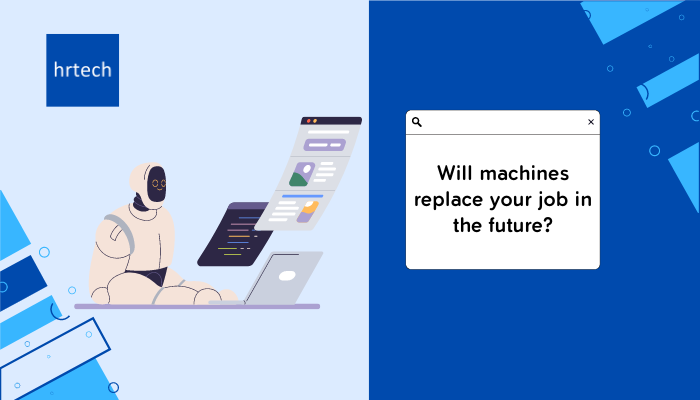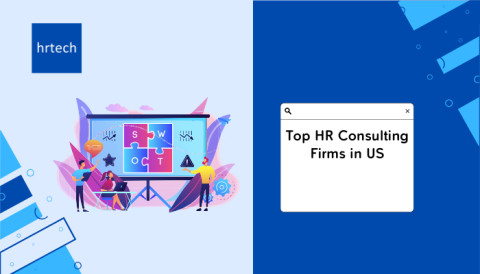In fact, a new term has been coined to describe the people that will take on this challenge – they are known as the Adaptive Talents. These Adaptive Talents will evolve with the technologies. They will fit alongside and complement the automation

No doubt this is a question that you may have discussed with colleagues or friends as it seems to be a hot topic of the moment, with not just employees talking about it, but major employers and governments too. Thanks to www.willrobotstakemyjob.com, our anxiety is properly triggered.
But surely there’s nothing new here. There has been a century of concern about machines taking human’s employment, wave after wave. Maybe you remember the Luddites of the late 18th century? They were up in arms about machinery replacing laborious tasks in factories and on farms, and so went on a rampage smashing up industrial equipment. But, in fact, it turned out there was nothing to worry about as new employment opportunities subsequently arose.
However, this time around the scenario is so very different. No longer are the machines extension of our abilities, they are now able to perform completely unscripted tasks. What does this mean for you and I? And more importantly, “Should we be worried?”.
James Manyika, director and chairman of McKinsey Global Institute, said that to a large extent, the level of your anxiety will depend on the particular geographical labour market within which you operate. Let’s take an example; if you’re in high-tech Japan, where labour costs are relatively pricey, you can expect a higher percentage of jobs being automated. While in India, where labour is relatively cheap, automation may not be immediately around the corner.
Of course, automation will impact certain types of jobs more immediately and more dramatically than others. While the Luddites panicked about repetitive jobs being replaced by machines, and indeed modern assembly lines are jam-packed with robots, today’s automation threat to your job is in a completely different league. A friend of mine has just spent 20 years perfecting his language interpretation skills. I hate to be the bearer of bad news, but all his work may have been in vain. With the rapid development of translation tools, coupled with audio recognition, it seems the “Babel Fish” is about to become a reality – and he may be out of a job. Other jobs which require creativity will also be under threat. It might be time for doctors, teachers, lawyers, engineers and many other professions to perhaps start to rethink their future career.
Is there an upside in all this doom and gloom? Perhaps, yes. If doctors are to be replaced, who will be the brains behind the “Robot doctor”? Inevitably, someone will need to harvest the mountains of medical information, design the software which can diagnose a medical issue, and offer appropriate remedies. But on top of this, there is a whole other layer of more invisible new employment opportunities. Perhaps in the future, you might fancy developing a digital marketing strategy for this new medical industry, or get involved in the communication design?
Another advantage of this brave new world of employment is that many of these new technologies are scalable, which creates opportunities for overseeing and problem- solving over much bigger geographical territories. If our Robot doctor is rolled out across the world, then there will need to be a huge raft of software engineers on hand. It is predicted that these jobs will be much incredibly common in the future. It is the millennials who will be the first to experience working alongside these highly capable machines. The millennials will soon be the largest generation to work within and to master this new era. They will be working in multiple locations at any one time – many of them through digital interfaces.
Remember the Luddites? The Luddites were a secret oath-based organization of English textile workers in the 19th century, where a radical faction destroyed textile machinery as a form of protest. They weren’t able to foresee the inevitability of change. They couldn’t see the need to adapt. But with the benefit of hindsight, we can. In fact, a new term has been coined to describe the people that will take on this challenge – they are known as the Adaptive Talents. These Adaptive Talents will evolve with the technologies. They will fit alongside and complement the automation. Their roles will not be threatened; quite the opposite – new opportunities will constantly be opening up. Now in 2019, we are building a community that produces such Adaptive Talents in Asia.
Get in touch with us
About the author :

Djoann is passionate about driving social impact and meaningful change in the world using technology. Djoann co-founded GetLinks in January 2015. As CEO of GetLinks (and funded by Alibaba, SEEK, New World Group and 500 Startups), he oversees operations across 6 countries, leading a team of 17 nationalities over 120 employees. Djoann has previously worked as Regional Digital Marketing Executive at Rocket Internet GmBH for Lazada (acquired by Alibaba in 2016). LinkedIn




